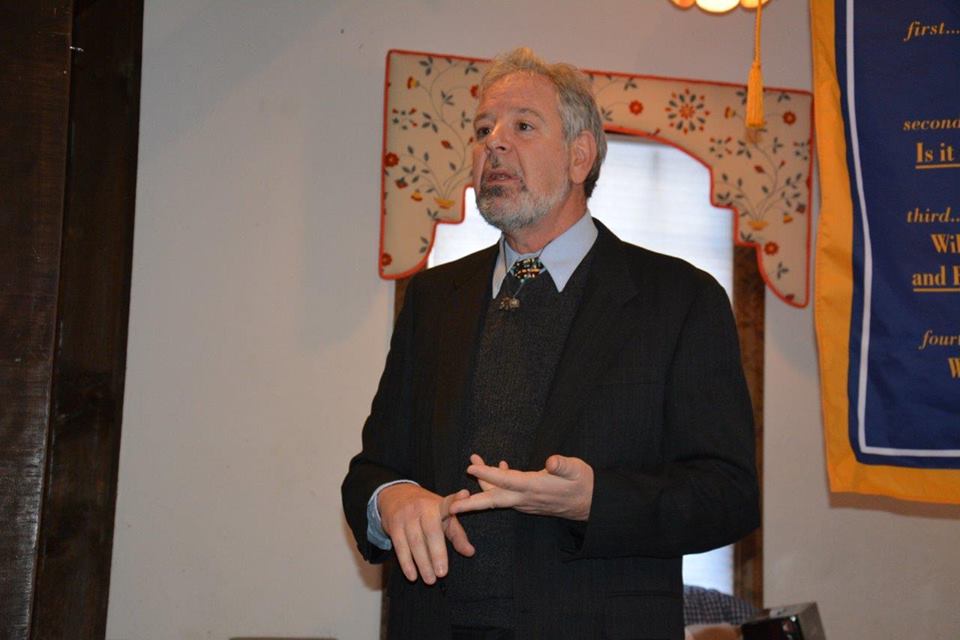Weekly Bulletin - January 29, 2015 Meeting
Posted by Richard Garcia
on Feb 05, 2015

Our speaker was Brian Lisse, Tufts Medical School faculty member, attending physician at Nashoba Valley Medical Center in Ayer, and Founder of Bridges to Malawi.
Guests
- Gino Frattiloni, Acton-Boxboro Rotarian
- Carl Gomes, Worcester Rotarian
- Brian Lisse, Speaker
Announcements
- Power of Change: Last week’s event at the Fenn School in Concord was well-attended and well-received, with participants Razia Jan (educator in Afghanistan), Craig Norberg-Bohm (White Ribbon campaign), and Val Callahan (current district governor of Rotary) inspiring the attendees to become change agents in their communities. Special congratulations go to Nancy McPherson, Mary Garcia, Karin Gaffney and Dan Hnatio for all of their hard work to make this event a great success.
- WPI Rotaract: The installation of officers and inauguration of the club scheduled for last night had to be cancelled because the building was closed on account of the snow. No postponement date has been set. Also, 7 Rotaractors want to go to the international Rotary conference in Brazil; they’re looking to crowdfund the costs.
- Guatemala project: A memorandum of understanding with Coban club has been signed.
- Bolton Repair Café: They are set for volunteers. Baked goods will still be appreciated.
- District 7930 (North Shore) is holding a Polar Plunge in Gloucester on Saturday; pledges are being taken by Dana Gray, who is participating.
- Stop Hunger Now: 5 clubs are involved (us, Littleton, Clinton, Acton-Boxborough, Montachusett Area). This will also be a kick-off event for our efforts to begin an Interact club at the high school. Each participating club is asked to supply 16 volunteers; our club is coming close.
- RFK Center: Presentation of the check for the rope course will be in a few weeks, with the construction of the rope course to occur in March; we’ll have a joint event with them when it’s finished.
- Gift of Life: Gabriel, the child, underwent a 5 hour operation. His mother, Jacqueline, is staying with him at Children’s Hospital, then they’ll return to Richard Simon’s house for several weeks’ recuperation. [Update: the operation was partly successful; he needed stents in his pulmonary arteries. 2 out of 3 went in perfectly; there were problems with the third. But it doesn’t seem to affect his overall recovery.]
Happy/Sad fines
- Maryann Fitzgerald: has to delivery 2 lamps to families.
- Jim Stone: sad that his son lost his job, but happy that he’s now found one
- Gino Frattiloni: glad that Richard enjoyed his honeymoon; arrived late because of two accidents.
- Carl Gomes: happy to be here.
- Ray Pfau: happy that Gabriel’s surgery went well, and that he didn’t lose power.
- Bob Johnson: happy to have spent time in South Carolina; sad that he lost his cell phone; happy about his 70th birthday surprise party arranged by his daughter, with about 100 people in attendance.
- Richard Simon: happy for his honeymoon in Panama, and for the success of the Gift of Life operation; sad, that his uncle passed passed on.
Speaker:
Brian Lisse, Tufts Medical School faculty, attending physician at Nashoba Valley Medical Center in Ayer, and founder of Bridges to Malawi
Malawi is the eleventh poorest country in the world. It has one of the highest rates of AIDS, and is subject to flooding and other natural disasters. Brian, after founding a free clinic in Boston and working in Bridges to Nicaragua for ten years, has now begun Bridges to Malawi. It provides free medical care to the people; provides an educational environment to exchange knowledge and skills; supports the Malawian health care system with needed supplies and money; gives practical experience to fourth-year medical students; and offers a scholarship for American juniors and seniors interested in medicine to travel to Malawi and shadow health care workers.
The rural clinic sees something on the order of 700 patients a day. Malaria is a chronic problem. It chiefly attacks pregnant women and young children. Malaria rates have been halved worldwide. Nets are useful, but can often be misused (e.g., for fishing or fencing). During Malawi’s rainy season, it can be controlled by 1 pill/month.
What’s the difference between Nicaragua and Malawi? Chiefly, land reform. Large landholdings in Nicaragua were broken up and given to small farmers. In Malawi, sharecropping is common—paying the landlord with crops before any is kept for yourself; also, tobacco is a major crop.
People go to Malawi once a year, mainly in March. Those who go pack two bags: one for personal items, the other for medical supplies/equipment.
Brian became interested in this project when he was a boy, watching his grandfather, who was a country doctor literally paid in chickens and produce by people who otherwise couldn’t afford care.
Next meeting
- Where: Colonial Candies, 47 Sugar Road, Bolton
- When: 7:15 – 8:30 AM
- Program: Meg O’Leary will speak about the Bolton Common Project
